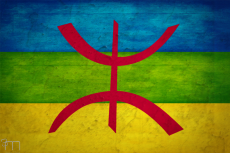
Email: nadege.preston@hotmail.com
Total Article : 82
About Me:Hi I’m Nadege and I study French at the University of Leeds, and I have just completed my third year abroad in Montpellier studying literature and enjoying the sunshine! I love art; painting and being creative, as well as photography and baking. Travelling is my favourite hobby at the moment; experiencing the French language and culture. I hope you enjoy reading some of my articles!

Algeria’s struggle in the post-colonial era involved the difficulty to rebuild a national language; therefore language construction was a challenge to the nation. Nationalist Africans aimed to ‘destroy’ the French language and culture, in order to gain political freedom. However, the language community was fragmented and therefore a policy of ‘Arabisation’ began. This policy meant that Algeria wanted to re-Arabise the country and therefore aimed to replace the French language with Arabic in all sectors that were dominated by the French. It was in 1990 that Arabic became the official national language. The aim of the policy was to rebuild the identity of the Algerian people, and to restore their cultures which were previously destroyed by the colonisers. The link can be made between the policy of ‘Arabisation’ and the French policy of assimilation because it solely focuses on the Arabic language varieties, and ignores the other indigenous language varieties in Algeria. The many other language varieties which create high linguistic diversity in Africa are pushed to one side, and the dominant language becomes Arabic. This means that the people in Algeria will be forced to disregard the other language variations in order to conform to the national language. Consequently, though Arabic is not a completely ‘new’ language imposed onto the people, unlike French, the Algerian people are still forced to reject part of their culture and disregard the other language varieties they knew.
Furthermore, the people whom may not know Arabic will continue to feel like foreigners in their own country as they are not familiar with the official language. The aim to replace the French language with Arabic in order to create national unity is therefore not as strategic as it may seem which reflects how the complex linguistic situation is not greatly improved by the country’s language policy. The official language has eradicated other language varieties by imposing a higher status on the Arabic language; therefore, once again, national unity has not been created. The difficulty in creating a national language is that other indigenous languages will be ignored. However, which is more important; to keep all the different language varieties but to not have effective language communication or to have one national language which creates unity whilst also forcing Algerian people to assimilate to this national language.
‘Arabisation’ consequently eradicated the other language vernaculars. However, Algeria, being a multilingual country has various other languages in competition with Arabic. For example, Tamazight (the language of the Berber population) has only been recognised due to the political manifestations undertaken by the Tamazight speaking populations. There is therefore evidence that the speaking populations of other language varieties are attempting to be recognised by the government, and are fighting for their language variety to be recognised nationally as vernaculars such as Tamazight are not recognised in any official sectors.
IMAGE URL
http://static.tumblr.com/ffc097ec89e03b0d4b26dddd12e57201/4sjni1m/wMzmpdpp8/tumblr_static_amazigh_flag_xd_by_abdomadi-d4jm5uj.jpg The Tamazight flag.

0 Comment:
Be the first one to comment on this article.